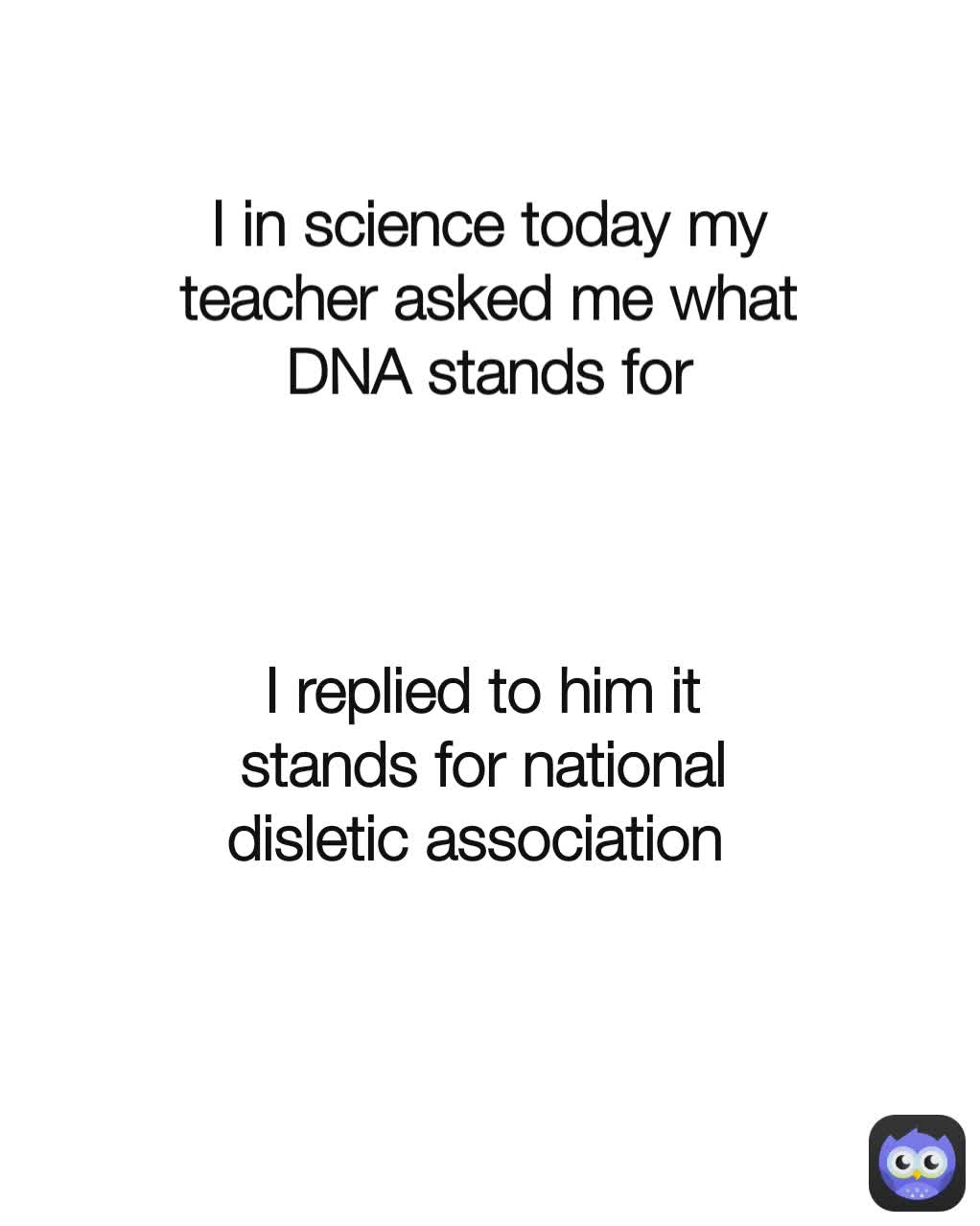


As such, it is only recommended for limited use in situations which an individual can’t or is unwilling to get the mRNA version vaccines. It is currently not available in a bivalent version.
#Dna stands for wrong answer series
Millions of vaccines have been administered safely to children at this point.įor a more detailed look at the considerations related to COVID-19 vaccination of children and a series of resources, check out the March 2023 issue of Parents PACK and this April 2023 article penned by Dr.Like adults, some children who have had COVID-19, even mild cases, have experienced lingering symptoms, commonly referred to as “long COVID.” In younger children it may be difficult for them to express what they are feeling or experiencing, which can make this condition even more difficult to identify and address.Importantly, it appears that newer variants are less likely to cause MIS-C. Some of those children were hospitalized with severe disease or developed a condition called multi-inflammatory syndrome in children (MIS-C), which can damage organs and on rare occasions be deadly. Millions of children have been infected with the virus that causes COVID-19.

While this is a small number compared with the more than 1 million deaths in the U.S., for those families, their world will never be the same. As of mid-April 2023, almost 1,800 children 18 years of age or younger have died from COVID-19.Most healthcare providers agree that the benefits of vaccination outweigh the risks for our youngest family members: As parents weigh the relative risk and benefits of getting their youngest children vaccinated against COVID-19, some wonder about the need for their child to get a relatively new vaccine when the disease doesn’t seem too bad in most children.


 0 kommentar(er)
0 kommentar(er)
